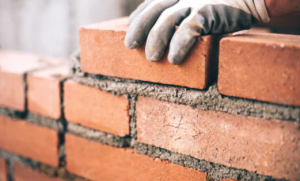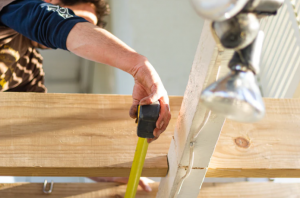Based on teenwire.org, some home improvement jobs may appear simple, but when you begin, you immediately recognize things can be harder than they seem. Whether the project is physically demanding, hazardous, or simply complex, we scoured testimonials and surveys to ascertain that all these are the roughest home development jobs, based on both homeowners and contractors.
Masonry and Bricklaying
 Envision handling tens of thousands of concrete or brick and doing more than tens of thousands of forward-bending tasks every day. “Masons need to have the ability to follow detailed construction instructions, break or cut stone and brick to the appropriate dimensions, combine and apply grout and mortar, construct and complete the essential structures,” notes U.S. News and World Report.
Envision handling tens of thousands of concrete or brick and doing more than tens of thousands of forward-bending tasks every day. “Masons need to have the ability to follow detailed construction instructions, break or cut stone and brick to the appropriate dimensions, combine and apply grout and mortar, construct and complete the essential structures,” notes U.S. News and World Report.
Working out with hefty and sharp-edged brick and stone, masons suffer greater illness and injury rates compared to industry averages, together with muscle strains becoming a frequent ailment.”
Plumbing
 While pipes might not be as physically harmful as roofing or bricklaying, plumbing tasks are not a stroll in the park. Pipes is among the toughest home improvement projects to master, as stated by the CraftJack poll that asked both homeowners and contractors about the toughest jobs. Plumbers not only need to take care of heavy plumbing and provide lines, however, they frequently find themselves functioning in the arctic cold to correct burst pipes and sometimes during crises. In addition to that, workplaces can be quite nasty.
While pipes might not be as physically harmful as roofing or bricklaying, plumbing tasks are not a stroll in the park. Pipes is among the toughest home improvement projects to master, as stated by the CraftJack poll that asked both homeowners and contractors about the toughest jobs. Plumbers not only need to take care of heavy plumbing and provide lines, however, they frequently find themselves functioning in the arctic cold to correct burst pipes and sometimes during crises. In addition to that, workplaces can be quite nasty.
HVAC
Injuries gone wrong can result in Freon flows and other severe harm to a system. The CraftJack poll reveals both homeowners and contractors state HVAC is among the toughest home improvement projects to master.
Electrical
 Electrical is the toughest trade to master based on both builders and customers, according to the CraftJack poll. I-TAP, an electric training program, reports that the most closely involved regions of the project are lifting segments of electric conduit and pulling a lot of cables. “Another frequent criticism is having to operate in attics, crawl spaces and other areas which could be embarrassing, especially in wet or hot weather,” based on I-TAP.
Electrical is the toughest trade to master based on both builders and customers, according to the CraftJack poll. I-TAP, an electric training program, reports that the most closely involved regions of the project are lifting segments of electric conduit and pulling a lot of cables. “Another frequent criticism is having to operate in attics, crawl spaces and other areas which could be embarrassing, especially in wet or hot weather,” based on I-TAP.
Comments are closed